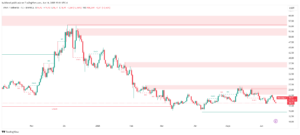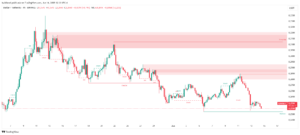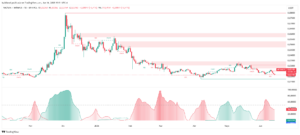
- Following the successful implementation of the Chang hard fork, ADA community members are raising questions about the future of governance and staking rewards.
- Charles Hoskinson, the founder of Cardano, clarified that ADA holders would need to actively choose between voting with no confidence, abstaining, or delegating to a DRep in order to withdraw staking rewards following the Chang hard fork.
Cardano has successfully implemented the Chang hard fork, marking the commencement of the Conway era. This is a significant step towards full decentralization. This significant event marked the incorporation of the CIP-1694 governance model, which allowed ADA holders to vote actively on the network’s decisions. According to the network’s blog post, this significant milestone “realizes the vision of a fully autonomous and decentralized network.”
However, ADA holders are growing concerned about changes in governance and reward systems following the Chang hard fork. Awakening to this fact, Cardano’s founder, Charles Hoskinson, has addressed the growing concerns.
To clarify, a user to withdraw staking rewards from the network has to choose one of three options: a vote of no confidence, abstain, or delegate to a drep. Wallets like lace will in the UX automatically choose abstain if a user selects delegation only thereby simplifying the…
— Charles Hoskinson (@IOHK_Charles) September 5, 2024
Via a post on X, Linda, a stake Pool Operator of MALU Pool, raised concerns first, stating that “To continue withdrawing your ADA staking rewards after the next hard fork, you may be required to delegate to a DRep. (This isn’t confirmed yet, but it’s looking very likely.)” This statement sparked heightened discussions within the Cardano community about how the governance changes would affect staking rewards.
In response to Linda, Hoskinson jumped in with a detailed clarification. Hoskinson explained that ADA holders would have to choose from three options when it comes to withdrawing staking rewards, including “a vote of no confidence, abstain, or delegate to a drep”
He went into more detail offering recommendations that “Wallets like lace will in the UX automatically choose abstain if a user selects delegation only thereby simplifying the experience.”
One X user enquired whether abstaining is choosing the abstain delegation option, to which Hoskinson further clarified, stating that abstaining is an active choice. This was after ADA holders misunderstood the abstention process, which some mistook for simply doing nothing. However, Hoskinson clarified that “It is an action, and thus, I clarified my tweet.”
Following the implementation of the Chang hard fork, there has been a growing concern over the potential for misuse or mismanagement of the new governance system, especially the role of DReps. One user voiced his concerns, stating: “I choose to abstain. I can’t bear to see little girl and boy influencer DReps bleed the treasury down to 0 in this experiment.”
Hoskinson reassured the worried community, highlighting the flexibility that comes with the new governance system. According to Hoskinson, the new governance system allows users to express their opinions: “That’s why that option is there. You can even vote no confidence in the entire system.”
Currently, the ADA holders hold the key to the network. They have the power to vote or shift their governance rights to DReps, who, in turn, represent ADA holders in governance decisions. Like Linda from MALU Pool, Stake Pool Operators continue to maintain the network’s infrastructure while participating in the governance process.
At the time of writing, ADA is swapping hands with $0.3253, marking a 1.63% decline in the last 24 hours.
The post Charles Hoskinson Clarifies ADA Staking Rewards Post-Chang Hard Fork: What You Need to Know appeared first on ETHNews.


